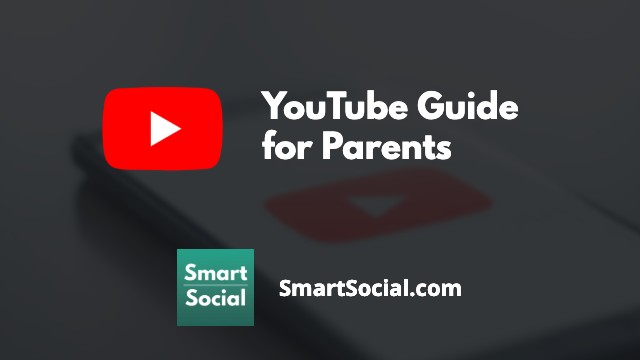Making Screen Time Fun While Reducing the Negative Impact
Green Zone App
(Click here to learn more)
Dangerous Social media challenge
(Click here to learn more)
Red Zone App
(Click here to learn more)
Gray Zone App
(Click here to learn more)

Screen time issues are becoming an increasingly pervasive challenge. We live in a digital world, and there’s no getting away from screen time completely, but we can help teens to enjoy their screen time while reducing the negative impact it may have on them.
Students have a plethora of opportunities for learning, socialization, and entertainment available to them, but it is important to teach them how to choose activities that benefit them rather than tear them down.
Educators and parents: Guide your students' reflection and discussion with this student worksheet. (Log in to your Google account and select File-->Make a Copy)
Educators: Implement this in your classroom using our facilitation guide. (Log in to your Google account and select File-->Make a Copy)
Full Event Replay (video)
How to Evaluate the Quality of Your Screen Time
- How do you feel after your screen time?
- Does that app/activity make you feel stronger or weaker after 1 hour?
- What screen time activities/apps make you feel stronger?
- What activities make you feel more focused and relaxed?
Negative Consequences of Excessive Screen Time
- Sleep problems - Too much screen time can make it hard to fall asleep and stay asleep
- Lower grades - Screen time can distract you and impact your focus, causing you to get lower grades
- Less social - Filling too much of your day with screens can take away from time with friends and family members
- Poor health - Replacing physical activity with screen time can decrease your overall health and cause weight problems
- Mood problems - Studies have shown that excessive screen time can impact your mood and sometimes lead to anxiety and depression
- Body image issues - Excessive social media use can lead to body image issues due to comparing yourself with others
How can positive screen time help you be productive?
Active screen time helps you accomplish your goals
- Learn a language
- Teach yourself programming
- Become the best player on your team
- Learn how to cook delicious new recipes
- Explore digital art and design
- Use programs like GarageBand to create music tracks
- Virtually travel the world with tools like Google Earth or YouTube travel videos
- Listen to podcasts about something you are interested in
Use Screen Time to Learn Important Skills
- Be mindful about who you subscribe to so your feed is filled with fun and productive tips that help you improve
- Learn how to master a skill you are interested in
- Explore new hobbies and find out what you need to do to get started
- Discover creative projects and science experiments
- Teach yourself how to 3D print and learn what tools you need
- Learn what you need to do to get into your dream college
Positive Things you can Learn on YouTube
- Travel the world through virtual museum tours
- Watch tutorials to learn how to create projects
- Understand your math homework by watching videos showing how to solve a math problem step-by-step
- Watch videos of science experiments and then try them with a trusted adult
- Watch documentaries about interesting events
- Learn to draw by following along with drawing videos
Positive Things you can Learn on Instagram
- Creativity - There are some great Instagram Reels that share how to do creative projects or hobbies
- Photography - Using Instagram to share photos? Use it as a chance to improve your photography skills
- Graphic design - Watch tutorials on Instagram that share tips for your favorite graphics software
- Public speaking - If you (and your parents) decide you are comfortable sharing Reels, it can be a great opportunity to work on public speaking skills
- Time management - As with any addictive platform, understanding when to set limits is an important life skill
- Activism - Following Instagrammers who are passionate about something you are interested in can help you learn how to advocate for those causes yourself
Strategies to Reduce Screen Time
- Set a timer
- Schedule blocks of time for passive screen time and avoid it outside of those times
- Ask a friend or family member to help keep you accountable
- Use reminders in your apps and devices to tell you when it is time to log off
- Use screen time apps to help you reach your screen time goals
Tools to Reduce Screen Time
- Opal - Opal blocks distracting websites and apps so you can focus
- ClearSpace - ClearSpace is free to use for one app (you can add more with the paid version)
- Freedom - Plan screen time schedules or set up limits for your current screen time session
- Off the Grid - Lock your phone down to take a break. You’ll be charged $1+ (or have to watch a video ad) to access your phone before your set time is over
- SelfControl - This app lets you block your own access to distracting websites. You set a time period and won’t be able to access them until the timer expires, even if you restart your computer or delete the app
- Forest - The Forest app has you “plant a tree” that slowly gets bigger the longer you stay away from distracting apps
How to Reduce the Amount of Negative Screen Time (Expert Video)
How can parents transition their children from passive to active screen time? (Expert Video)
How to Make Screen Time More Productive
Do you want to learn a skill or practice a hobby? Use your screen time to help you improve in areas you are working on. No matter what you are interested in, there is probably a way to replace some of your passive screen time with something more active.
- Piano: Apps like Simply Piano or Yousician
- Coding: Platforms like Codecademy or LeetCode
- Baseball: VR training apps or analysis tools
- Debate: Online forums or debate clubs on platforms like Zoom
- Languages: Duolingo, Rosetta Stone
- 3D Printing: Use YouTube to learn how to use Tinkercad and Cura to print objects
Manage Your Weekly Screen Time with this Printable Weekly Screen Time Schedule
Scheduling blocks of time when screen time is acceptable can help you avoid distractions at other times of the day. Download this weekly screen time schedule. Shade in the times when non-school screen time is allowed. Consider having a different schedule for weekdays and weekends.
.jpeg)
Use this together with our Family Media Agreement to set clear boundaries regarding screen time use at home.
More resources for parents, students, & educators
- Balancing Video Game Screen time for Teens
- 50+ Tips to Limit Screen Time Without Conflict
- Using YouTube to Explore Colleges and Careers
- Positive Ways to Use ChatGPT for Students
Conclusion
Navigating screen time issues today is a huge challenge but finding balance is possible. There are definitely many negative consequences for excessive screen time, but in moderation, screen time offers many opportunities for teens to learn and develop their talents. By starting early, teens can set themselves up for a lifetime of balanced screen time use and reduce the potential negative impact.
Protect your family and enter for a chance to win cool prizes
Become a member or log in to learn more on this topic
Protect your family and enter for a chance to win cool prizes

., start learning from this page to earn points!*
Hello, I'm Josh, the founder of SmartSocial.com.
Don't leave this page until you fill out our feedback form that will appear after you learn from the resources...
Here are some of the latest resources at SmartSocial.com
Become a Very Informed Parent (VIP) to get our social media suggestions in your email every Tuesday & Thursday.



Hello, I'm Josh, the founder of SmartSocial.com. Protect your family by taking my 1 minute quiz
This quiz will help you understand how safe your family is


Schools & Districts: Partner with us to protect your community online
Our remote presentations (and website) teach over a million parents and students each year how to be safe so they can shine online. We teach students how their accounts can be used to create a portfolio of positive accomplishments that impress colleges and employers.


Join Our Smart Social Podcast
each week on iTunes
With over 500 episodes, Josh Ochs interviews psychologists, therapists, counselors, teachers, and parents while showing you how to navigate social media to someday shine online.
Listen on:




.jpg)
.jpg)
.jpg)
.jpg)
.jpg)
.jpg)
.jpg)

.jpg)

_.jpg)
.png)